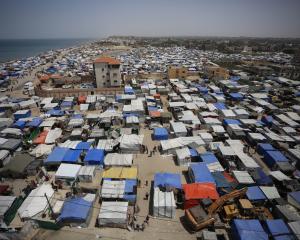An elected member of the West Coast District Health Board who worked in mental health for 41 years, has hit out at suicide prevention on the Coast, saying far too many people are being turned away.
It was reported on Monday that the Runanga Volunteer Fire Brigade had attended five suicides in 14 months.
Peter Neame, of Cobden, who spent many years as a psychiatric nurse at Seaview Hospital and latterly in Australia and has previously been invited to speak at international conferences on the subject, said the response from the West Coast and Canterbury DHB was "worse than useless".
The health board had never invited him to join its own suicide committee.
"On the Coast we have a big spread-out area, it's hard for people to get help. Far too many people are being turned away," Mr Neame said.
Someone who had threatened to end their life needed to be admitted quickly or they would finish the job, he said.
When he started psychiatric nursing, people would be admitted to hospital for three months. He advocates for at least two weeks' admission.
He notes that the suicide rate was lower in the 1970s.
As all behaviours were patterns, people who attempted suicide were likely to repeat it, and many were unaware they were unwell.
The official yearly suicide toll was about 500, but he suspected it was really closer to 1500, with many recorded instead as "accidents".
Suicides generally only got publicity when they happened in prison, and there was a belief people did not kill themselves because of farm debt, or abuse as a child.
"It's a neurological defect."
Suicide was the only life-threatening condition where people were routinely refused care, Mr Neame said.
West Coast DHB mental health and addiction services clinical director Dr Cameron Lacey did not directly respond to Mr Neame's concerns.
However, he said suicide prevention was not the job of any single agency or group. It was a serious concern for New Zealand communities.
"People take their own lives usually as a result of complex factors and there is rarely any one cause. A range of protective factors can enhance a person's well-being and resilience, and reduce their risk of suicide."
Protective factors could include access to community and health resources, social connectedness, and the capacity to cope with life's difficulties, he said.
A co-ordinated response across New Zealand as well as in local communities was needed to tackle this important concern.
"The West Coast DHB takes its responsibilities seriously and works with other local agencies to provide a range of services and programmes to support and assist the West Coast community, including the work of the Suicide Prevention Governance and action groups," Dr Lacey said.
Where to get help:
- Youth services: (06) 3555 906
- Youthline: 0800 376 633
- Kidsline 0800 543 754 (4pm to 6pm weekdays)
- Whatsup: 0800 942 8787 (noon to midnight)
- Depression helpline: 0800 111 757 (24-hour service)
- Rainbow Youth: (09) 376 4155
If it is an emergency and you feel like you or someone else is at risk, call 111.












